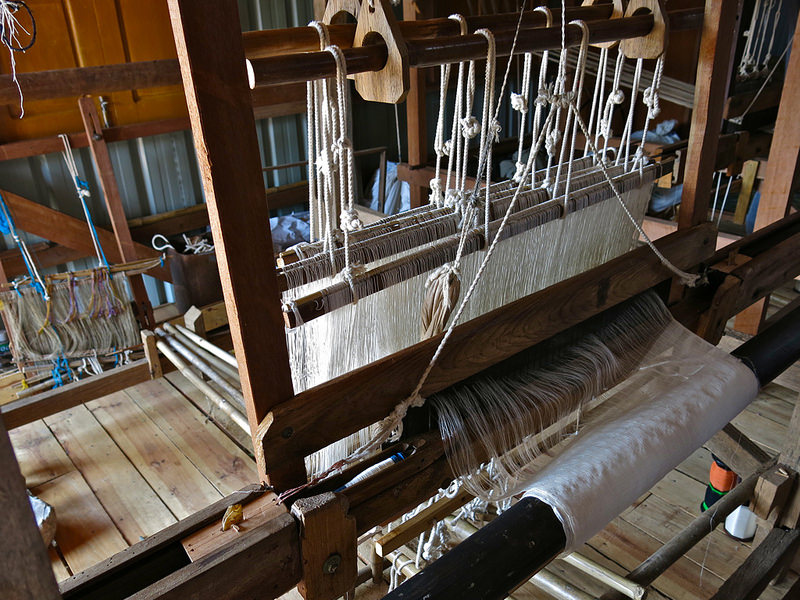| Two novels I read recently – The Underground Railroad and Homegoing – touched on how, historically, the production of cotton depended on slave labour. A lot of that cotton came to Britain and helped transform weaving from a cottage industry to, with the invention of Hargreaves’ Spinning Jenny and Arkwright’s water frame, in the second half of the eighteenth century, the bedrock of the industrial revolution. The legacy of this rich industrial history can be explored within about an hour’s drive from where I live; unfortunately, while I’m interested in how past generations earned their livings, I haven’t yet prioritised visiting the museums. |
The story I told Paul in the taxi amounting to little more than fabrications and approximations, after all, a story stitched together like one of my mother’s samplers, bits of this and that sewed together to form a whole, a sum that might appear – the thinking goes – more pleasing than its parts.
(Aria Beth Sloss, Autobiography of Us, p277)
Every story contains a moment you can point at and say, ‘Look, there, that’s where it all unravelled,’ and maybe this was such a moment. […] But Tony was a storyteller, and he knew that if you looked at any narrative closely enough you could trace the unravelling back and back and back – right to the very beginning, if the story was good enough.
(Nick Hornby, Funny Girl, p222)
A major difference, to my mind, between literal and metaphorical (literary) weaving, is that the latter is much quieter activity. Being particularly sensitive to noise, I’m much more suited to weaving stories, and I’m grateful to find I have a choice. The one time I visited a contemporary (as in about ten years ago, like much of the manufacturing in Britain, it’s now closed) textile factory, I was shocked by the volume of the rattling machines. I can’t locate it on the map, but there’s a hamlet near me called Rattle supposedly based on the noise made by the weaving frames.
Those who follow the Carrot Ranch will see how I’ve clumsily woven the disparate threads of this post to form the canvas for this week’s flash fiction challenge to write a 99-word story about a rattling sound. I must confess I’ve been fairly rattled by the process, and can’t help thinking how much easier it would’ve been if had a novel to review in which a baby throws its toy out of the pram. (Although I have previously reviewed a novel – The Ballroom – that starts in a mill.) And, well, here’s my attempt at historical flash fiction, my research (belatedly noticed that this is a site for children, appropriate to my level) taught me another original meaning of a commonly used word:
| Scavenger “You a simpleton?” the overlooker roared above the rattling machines. I shook my head. But the job wasn’t so scary when Ma explained it. Dodging his stick, I squeezed into the narrow passageway beneath the loom. Thunder in my ears, nostrils clogged with dust, I gathered the stray strands of cotton from the floor. Slid out again and onto the next. It was dark when Ma brought me, dark when I limped home. A cough rattling my chest, fear rattling my mind. Aching back, arms, legs; buzzing ears. Rich kids went to school at six, I went to work. |























 RSS Feed
RSS Feed





















